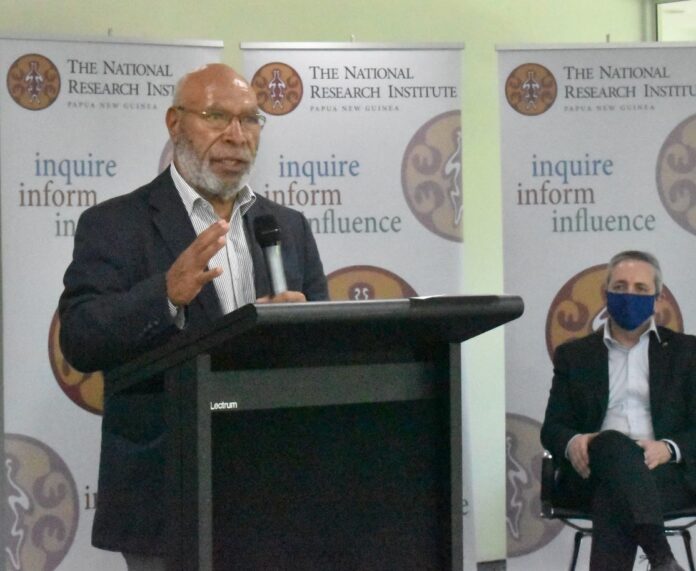WITH the ongoing concerns raised over the lack of basic services delivery having its capacity deteriorated especially to the rural population, there is still uncertainty as to where the autonomy and decentralization responsibility lies upon.
The Autonomy and Decentralization is a newly research project headed by Dr. Thomas Webster of the Papua New Guinea National Research Institute (PNGNRI) which will commence in Port Moresby starting July to September, 2021.
The research project was launched recently at the PNGNRI conference room in Port Moresby highlighting the main activities the project will be undertaking.
The research will involve a dialogue and information-sharing between academics, policy practitioners, political leaders and civil society on issues and challenges to autonomy and decentralized governance arrangements in PNG.
The head of the research project Dr. Webster speaking during the launch highlighted the main issue surrounding the ineffective power of autonomy and decentralization in Papua New Guinea.
“The CLRC (Constitutional Law Reform Commission) and DPLGA (Department of Provincial Local Government Affairs) final report states: Despite improved service delivery being one of the objectives of the Organic Law (1995), service has deteriorated over more than 20 years. This is particularly the case in rural areas where most people live.”
“The original organic Law of 1978 was replaced by this Act in terms of improving basic service delivery.
“However, it didn’t work from the government reports of 1978 on the establishment arrangement of Autonomy and Decentralized government system.
“The 1995 reforms has also not helping in any way. We can see as evidence pointed out through the media reports.
“There are a lot of tragic stories that have been posted on Facebook on the everyday struggles of ordinary lives of Papua New Guineans.
“It is important to look at this in a more objective way and see why we are going back to review and identify better way forward in improving service delivery,” Dr. Webster said.
He also said that there were other reports that had pointed out the weaknesses of the basic services delivery mechanisms and the capacity that has been deteriorated and will be part of the discussion topics during the seminar presentations.
Dr. Webster also clarified the two phase in which the research project will be taking.
The two areas of Research and Analysis for the project include: the Analysis of Current PNG Situation-Short Papers and Discussions at NRI fortnightly Seminars and the Analytical and Discussion Papers for Presentation at National Conference Planned for end of September 2021.
He added that through this process, key policy decision makers will have increased knowledge on options for autonomy and decentralization in PNG enabling them to consider specific legal and technical arrangements emanating from the national forum for follow up actions through GoPNG departments and processes.
“The outcome of the research report is to informed, robust discussions leading to adoption of appropriate legislative and administrative governance framework that is responsive to the needs of people and ensures effective delivery of essential basic services to the people of Papua New Guinea,” Dr. Webster said.
The Director for PNGNRI Dr. Osborne Sanida also acknowledged the Government of Australia for its never ending support through the entire research project conducted by PNGNRI.
“We are pleased that the Australian Government has agreed to support this important Research project on “Autonomy and Decentralization” of Government with a special focus on Improving Basic Service Delivery,” Dr. Sanida said.
The final conference report to the government is planned to take place in late September, 2021.

